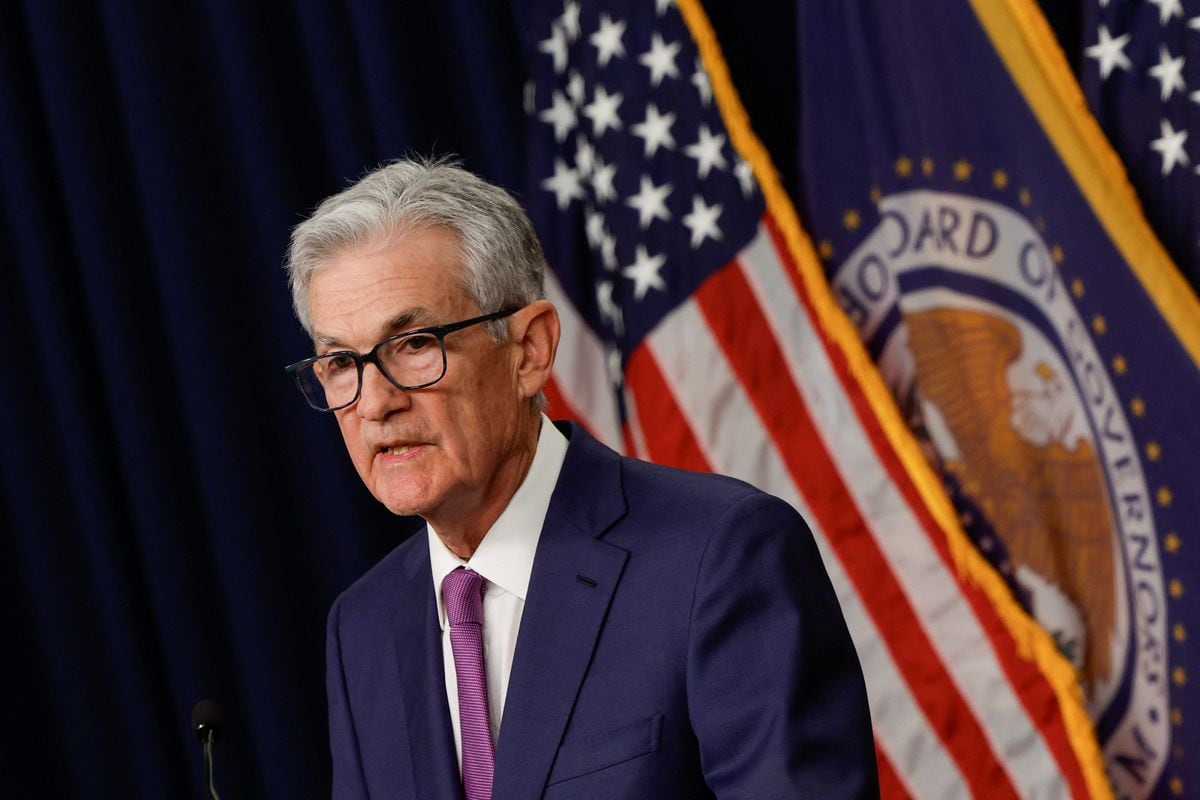Covid-19 in the US: Latinos die more than whites 2:13
(CNN Business) -
Lingering racial inequality is holding back America's economy.
America's failure to address the large gaps between black and white communities cost the economy as much as $ 16 trillion over the past 20 years, according to an analysis released by Citigroup this week.
The report, which focuses on inequalities in wages, education, housing and investment, highlights the racial tensions that contribute to the unrest in the United States today.
LOOK: The inequality between whites and blacks in the United States in 6 strong graphs
"The 400 years of slavery of black populations in the Americas has residual effects that persist to this day despite volumes of legislation that provide equal access to various aspects of American life under the law," wrote the Citi economists.
The 104-page report cites Martin Luther King, Jr.
Report in moments of a double crisis
This report comes as protests gripped major US cities on Wednesday amid outrage over the news that none of the three officers involved in Breonna Taylor's death were charged with her murder.
And also when the pandemic has worsened the problem of inequality in the United States by dealing a particularly hard blow to minorities.
Breonna Taylor case: protests spread across the US 1:58
"The dual health and economic crisis resulting from the coronavirus exposes the racial tensions and inequalities that have plagued the United States for centuries," says the Citi report.
The economic impact of the pandemic combined with "repeated incidents of police brutality involving black Americans has proven too great to ignore," the economists wrote.
"The result precipitated not only protests in the streets, but also a general reassessment of the very soul of the nation," says the report.
Persistent black-white gaps
The findings of the Citi report make clear that while the United States has come a long way in addressing inequality, huge gaps still exist today:
White families have eight times more wealth than black households.
The homeownership rate among whites in the United States is nearly 80%, compared to 47% for blacks.
Blacks are five times more likely to be incarcerated than whites and make up 33% of the nation's prison population.
This despite the fact that they only represent 12% of the total population.
Income levels peak earlier and lower for black men (ages 45-49, $ 43,849) than for white men (50-54 years, $ 66,250).
The total wealth of American billionaires ($ 3.5 trillion) is equivalent to three-quarters of all black wealth ($ 4.6 trillion).
These gaps hold back the economy in general.
READ: OPINION |
19 ways to combat racism
"Social inequalities have manifested themselves in economic costs, which have hurt individuals, families, communities, and ultimately the growth and well-being of the US economy," the Citi report states.
Many black families have missed the benefit of rising home prices
Covid-19 drives the housing sector 1:03
In fact, some key metrics suggest that the divide between black and white Americans has worsened.
Citi found, for example, that the gaps in homeownership rates are wider now than they were in the 1950s and 1960s. So are those for college degree achievement.
"America is light years fairer than it was in the 1950s, but the systems that perpetuate inequalities between different racial groups still remain or are being reinvented, either consciously or unconsciously," says the Citi report.
The report points to the far-reaching impact of discriminatory housing practices.
"Fifty years of barriers to home ownership by blacks means that black families have missed out on the benefits of home price appreciation, a key ingredient for wealth accumulation," the Citi report explains.
And the housing gap also plays a role in uneven education.
Citi economists noted that there is a "strong correlation between high-value housing and the quality of education."
This happens because school districts are financed largely through property taxes.
"If neighborhoods are segregated, so are schools," says the report.
The pandemic increases inequality
Study: more covid-19 in nursing homes with minority groups 1:19
The health crisis exacerbates the racial divide in America.
Black Americans have been hardest hit by the pandemic, dying at a rate 2.4 times higher than white Americans.
And blacks are overrepresented in essential jobs like healthcare, food service, and childcare.
Neither of these can be done from home.
Black-owned businesses suffered more business destruction between February and April than non-ethnic businesses, according to the National Bureau of Economic Research.
MIRA: Racism and discrimination affect Latinos and blacks more in their fight against covid-19
Federal Reserve Chairman Jerome Powell recently expressed concern about how inequality hurts the economy.
"The productive capacity of the economy is limited when not everyone has the opportunity, has the education and health care and all the things that are needed to be an active participant in our workforce," Powell said last week in response to a question from CNN Business.
However, Powell said the Fed doesn't really have the ability to "target particular groups."
And he added: "Ultimately, these are problems for elected representatives."
How to fight inequality
The Citi report sets out a plan for how the Government, as well as Corporate America, can help address inequality in a meaningful way.
Closing inequalities in wages, education, housing and investment today could boost America's GDP by $ 5 trillion over the next five years, according to the report.
But it won't be easy.
A sample of the policy suggestions includes:
Minimum wage increases.
Currently, 38% of black workers work for the minimum wage even though they only represent 11% of the workforce.
Reform the tax code so that it collects revenue more progressively and spend the money to address the pay gap.
Ban employers from asking about salary history to stop prior pay discrimination.
Continue funding tax provisions that have been "proven to reduce poverty," such as the Earned Income Tax Credit and the Child Tax Credit.
Expand tax incentives that promote low-income housing in affluent areas.
Promote residential and commercial development in poor and minority communities.
The Citi report also urged companies to implement policies that address racial gaps in the hiring, firing and retention of workers.
Earlier this week, Citi unveiled plans to spend more than $ 1 billion to help close America's racial wealth gap.
This includes $ 550 million to help people of color buy homes and promote affordable housing built by minority developers.
"Moving out of a history of entrenched segregation and an active policy of discrimination into an era of genuine fairness will require thoughtful reform at the individual, corporate and government levels," said the Citi economists.


/cloudfront-eu-central-1.images.arcpublishing.com/prisa/HWNXJOM4ENEOHCQN3NSKWWMECM.jpg)









